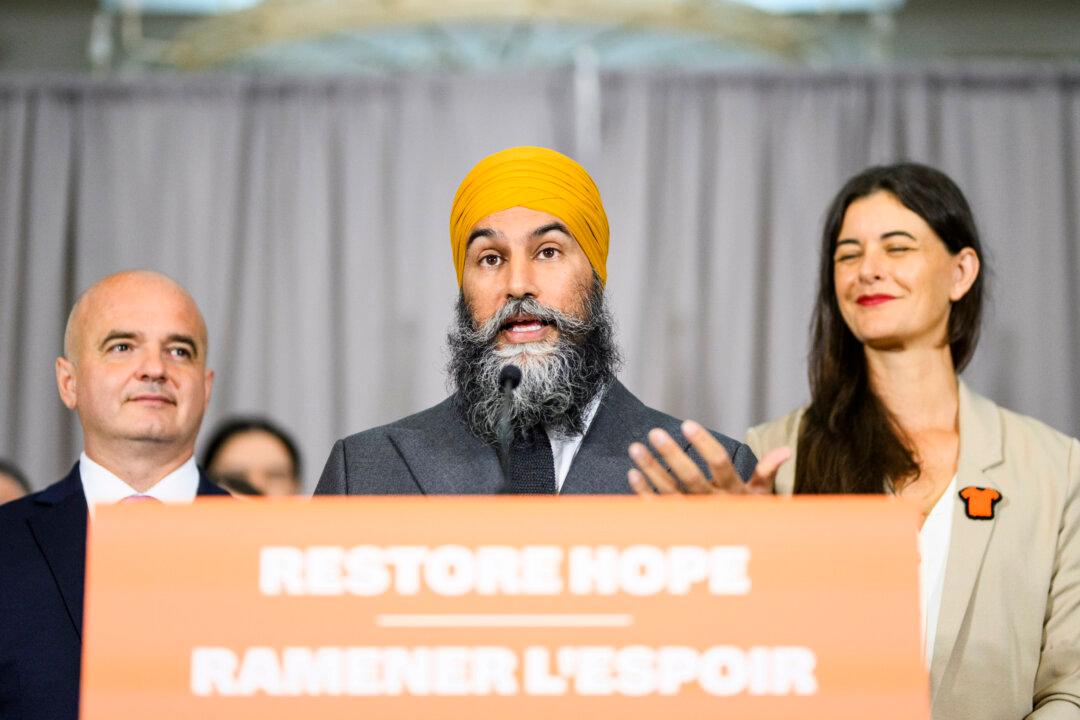A day after breaking his deal with the Liberals, NDP Leader Jagmeet Singh said an early election is “more likely” but avoided saying whether he still has confidence in the government.
Singh repeatedly stated during a Sept. 5 press conference that he broke his alliance due to the Liberals’ unwillingness to tackle “corporate greed.” He mentioned Ottawa’s recent intervention in the railway labour dispute as an example.





